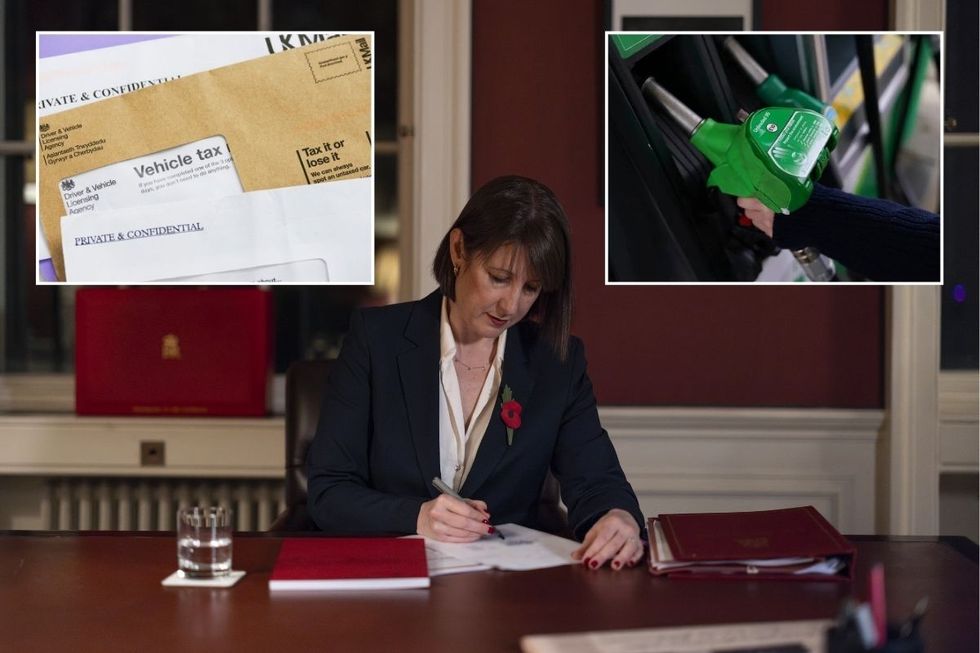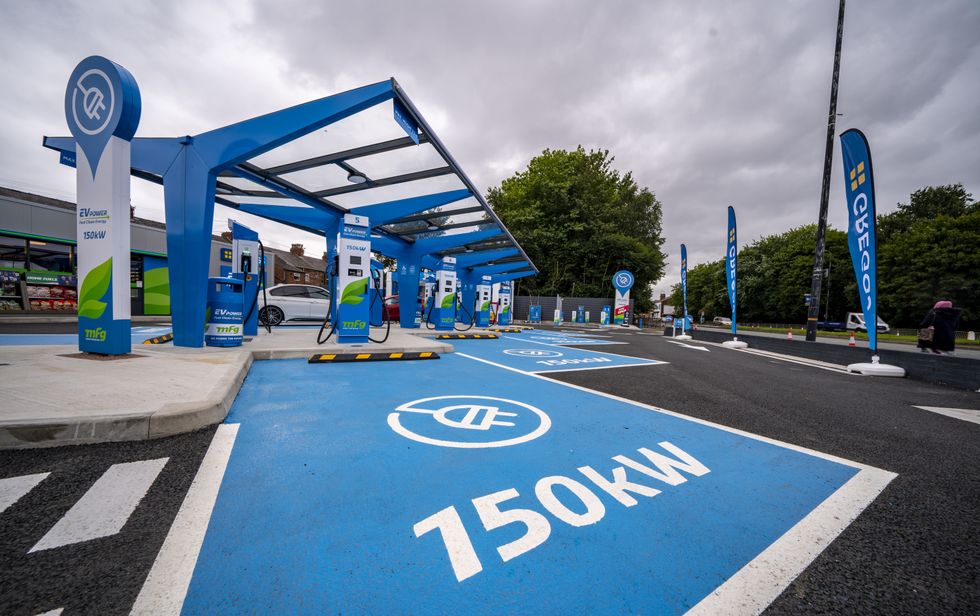Rachel Reeves says she will continue to support the purchasing of electric vehicles
GB NEWS
Car tax changes will come into effect on April 1, 2025
Don't Miss
Most Read
Trending on GB News
Drivers have been warned they only have a few months to prepare for the upcoming car tax changes announced by Chancellor Rachel Reeves during the Autumn Budget.
The changes impact Vehicle Excise Duty (VED) rates which are set to increase from April 2025, with drivers urged to get familiar with exactly what this means.
It comes after the Government implemented major reforms to strengthen incentives for electric vehicle adoption by widening the tax differentials between zero emission, hybrid and petrol and diesel cars.
From April 1, zero emission cars will pay the lowest first year rate at £10, while rates for cars emitting 1-50g/km of CO2, including hybrid vehicles, will increase to £110.
Do you have a story you'd like to share? Get in touch by emailingmotoring@gbnews.uk

Rachel Reeves revealed new tax rates during Autumn Budget announcement
HM TREASURY/GETTY/PAVehicles emitting 51-75g/km of CO2 will see rates rise to £130, while all other rates for cars emitting 76g/km and above will double from their current level.
The changes form part of the Government's broader strategy to support the transition to electric vehicles. Rates for cars emitting 1-50g/km of CO2, which includes many hybrid vehicles, will see a significant increase to £110 for the first year from April 2025.
Cars with emissions between 51-75g/km will face a higher rate of £130 in their first year. The most substantial changes will affect vehicles emitting 76g/km of CO2 and above, with first year rates doubling from their current levels.
The Government has also committed to freezing the lowest first year rate paid by zero emission cars at £10 until 2029-30.
These changes to VED first year rates are designed to create “clearer financial incentives” for drivers to choose electric vehicles over hybrid or conventional petrol and diesel cars, the Budget report detailed.
However, the Government did agree to maintaining tax incentives for electric vehicles through the Company Car Tax regime, with rates set to encourage zero emission vehicle adoption. Electric and zero emission vehicles will see appropriate percentages increase by two percentage points per year in 2028-29 and 2029-30, rising to nine per cent in 2029/30.
For hybrid vehicles with emissions of 1-50g/km of CO2, rates will increase to 18 per cent in 2028-29 and 19 per cent in 2029/30.
All other vehicle bands will see increases of one percentage point per year, reaching 19-38 per cent in 2028/29 and 20-39 per cent in 2029/30.
The Government is also extending 100 per cent First Year Allowances for zero emission cars and electric vehicle charge points for a further year until March 2026 for corporation tax purposes.
This package of measures aims to provide long-term certainty for taxpayers and industry while focusing support on fully electric vehicles.
The Government has also invested over £200million in 2025/26 to accelerate the rollout of electric vehicle charging infrastructure across England. This includes funding to support local authorities in installing on-street charge points, building on the UK's existing network of over 70,000 public charge points.
A further £120million will be provided in 2025/26 to support the purchase of new electric vans through the plug-in vehicle grant.
LATEST DEVELOPMENTS:
- Driving law changes launching today will see major new updates for electric vehicle charging stations
- SUV owners issued serious threat as climate protesters target 'monster' vehicles - 'Time to hold them to account'
- Drivers with larger petrol and diesel cars could face 'Land Rover tax' and new parking restrictions
 Electric cars priced over £40,000 will see tax hikes in AprilPA
Electric cars priced over £40,000 will see tax hikes in AprilPAThe Government's strategy aims to support the transition to electric vehicles ahead of the planned phase-out of new cars that rely solely on internal combustion engines by 2030.
From 2035, all new cars and vans sold in the UK must be zero emission. The changes mean drivers of higher emission vehicles will face substantially increased costs from April 2025.
For the average car driver, the Government has provided some relief by freezing fuel duty and extending the temporary 5p cut for another year, saving £59 in 2025/26.








